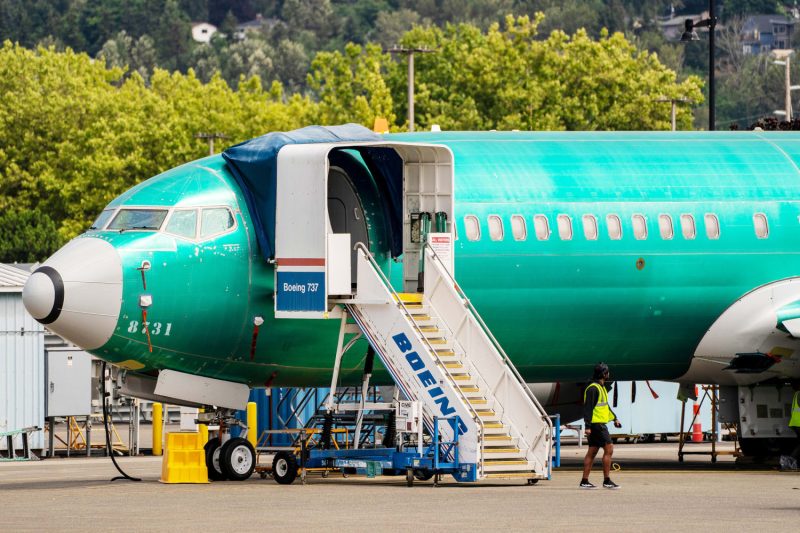
Boeing Set to Secure Up to $25 Billion for Financial Strengthening
Boeing to Raise as Much as $25 Billion to Shore up Balance Sheet
The global aviation industry has faced severe challenges amidst the ongoing COVID-19 pandemic. Boeing, one of the world’s largest aerospace companies, has not been immune to the crisis. In an effort to strengthen its balance sheet and weather the financial impact of the pandemic, Boeing recently announced its plans to raise as much as $25 billion in additional funding.
The decision to raise such a significant amount of capital highlights the gravity of the situation facing Boeing and the aviation industry as a whole. The aerospace giant has been hit hard by the sharp decline in air travel demand, as airlines have been forced to ground or retire aircraft due to travel restrictions and reduced passenger traffic. Boeing’s commercial airplane division, which is a key revenue driver for the company, has seen a significant drop in orders and deliveries, further exacerbating the financial strain.
To address its financial challenges, Boeing is pursuing a combination of debt issuance and new stock offerings to raise the necessary funds. The company’s plan includes a mix of debt securities, convertible notes, and potential equity offerings, with the goal of bolstering its liquidity and strengthening its financial position. This move is aimed at providing Boeing with the necessary resources to navigate the current crisis and position itself for future growth once the aviation industry begins to recover.
The decision to raise such a large amount of capital comes as Boeing continues to face scrutiny over its handling of the 737 MAX crisis, which has further strained its financial resources and reputation. The company has been working to address safety concerns and rebuild trust with regulators, customers, and the public, all while managing the financial fallout from the prolonged grounding of the 737 MAX fleet.
Boeing’s ability to successfully raise the targeted $25 billion in funding will be crucial for its long-term viability and competitiveness in the aerospace market. The company’s ability to weather the current storm and emerge stronger on the other side will depend on its ability to effectively manage its financial resources, navigate industry challenges, and adapt to the changing market dynamics in the post-pandemic world.
As Boeing moves forward with its plans to shore up its balance sheet, investors, analysts, and industry stakeholders will be closely monitoring the company’s progress and financial performance. The success of Boeing’s fundraising efforts will be a key indicator of its ability to overcome the challenges facing the aviation industry and position itself for sustainable growth and success in the years to come.
In conclusion, Boeing’s decision to raise $25 billion to strengthen its balance sheet reflects the profound impact of the COVID-19 pandemic on the aviation industry and underscores the company’s commitment to navigating through these challenging times. By pursuing a combination of debt issuance and equity offerings, Boeing aims to fortify its financial position and pave the way for a brighter future once the industry begins to recover.
